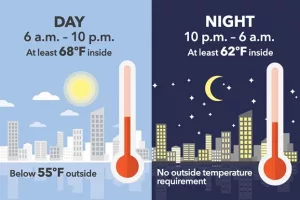Questions To Ask Your Potential HOA in 2025
Go Back To Previous PageWhether it is a condo, a co-op, or an actual house property owner’s association, realizing how much your HOA will matter in your day-to-day life is essential. An HOA board is there to ensure property values don’t go down. In the cases of condos and co-ops, your HOA can also be in charge of maintaining large portions of your property. Therefore, not all HOAs are going to be super strict. Also, not all of them will have specific policies in place. You need to find a building (or condo or co-op unit) that works with your needs regarding regulations and maintenance. That’s why you need to vet your HOA just as much as you need to vet your housing. Thus, these seven questions can help determine whether that community is right for you. Let’s answer the main questions about the average HOA fees and what they cover.
An HOA board is there to ensure property values don’t go down. In the cases of condos and co-ops, your HOA can also be in charge of maintaining large portions of your property. Therefore, not all HOAs are going to be super strict. Also, not all of them will have specific policies in place. You need to find a building (or condo or co-op unit) that works with your needs regarding regulations and maintenance. That’s why you need to vet your HOA just as much as you need to vet your housing. Thus, these seven questions can help determine whether that community is right for you. Let’s answer the main questions about the average HOA fees and what they cover.
1. How often are HOA fees raised, and when they’re raised, how much higher do fees typically get?
Please make no mistake about it. HOAs all have their fees and membership dues that you have to pay.
Some might only be a couple of hundred bucks per year. Others may charge upwards of $1,000 a month. You need to know the fees, penalties, and similar charges you expect to pay in upcoming years.
Many homes are in areas that are cheap on paper but have extraordinarily high fees. If this is the case, you may need to rethink this area.
2. Have there been any complaints about this HOA recently?
Most HOAs will have a file that shows any official written complaints.
You should check out what others have to say. If you notice a string of complaints regarding stringent rules, random fines, or excessive regulations, you might want to walk away,
3. Can we please see the HOA financials and meeting notes?
As an HOA member, you will have to pay maintenance fees.
Therefore, you owe it to yourself to ensure that your money goes to projects and upgrades that benefit you.
The best thing you can do is watch for high administrative costs, unwise high-debt projects, and proposed repairs that repeatedly get put on the back burner.
In conclusion, responsible financial care is a must here!
For example, suppose the HOA refuses to let you see their financial statements, meeting notes, or bail. That’s corruption at its most apparent.
4. How well-funded is the HOA’s reserve?
The reserve is where all the funds for significant projects come from. It will be a major part of your home’s safety.
A poorly-funded reserve means you’ll either have to watch out for a significant fee spike or you’ll have to worry about a condo collapse, like the one you have in Miami.
5. What is your pet policy like?
If you want a new furry companion once you buy your place, your HOA will have a say in it.
Pet policies vary significantly from place to place. Some buildings don’t allow pets, even scaly ones like fish, and others are pretty lax.
Most HOAs with connected housing will have specific policies regarding the size of your pets. They detail the number of animals you can have and the liability insurance you must possess to keep them there.
6. Questions about HOA: What is your policy towards renting/subletting?
Many condo and co-op owners want to have the ability to rent out a room to a tenant. For example, this is especially true if the place they live in happens to be prime real estate for tourists. Knowing what to expect is reasonable, even if you don’t want that option.
You should ask about the rental policy, how often it is updated, whether the HOA protects homeowners against bad renters and whether the HOA has the right to select the person who rents from you.
7. Questions about HOA: Do you allow people to have an at-home business?
Shockingly, some will not allow you to have a home business. Or, if they do, they may limit what you are allowed to do there—such as crafting, making phone calls, or cutting hair.
If the HOA community bans certain businesses, it can impact your livelihood. So, make sure it’s okay before you move in.


